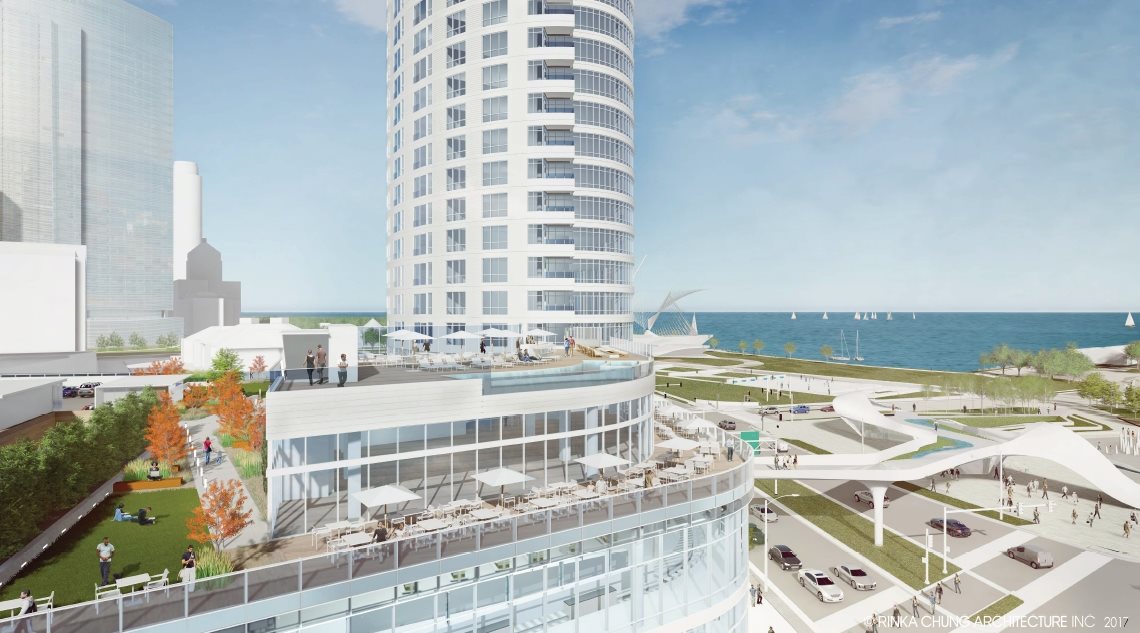City Atty Says Affordable Housing Plan Illegal
Will legal opinion kill the proposal? Or can Bauman and company rework the language?
A proposed affordable housing mandate is already getting its first test. The office of independently-elected City Attorney Grant Langley has issued a legal opinion that says a major portion of the ordinance would violate state law.
The proposal would require developers building privately-financed apartment buildings with 20 or more units to set aside 10 percent of all new units for residents making less than 60 percent of the area’s median income. It would raise that threshold to 20 percent when the project receives city financial support.
The City Attorney’s letter cites state statue 66.1015, which prohibits municipal rent control, and a 2006 court case involving a city of Madison inclusionary zoning ordinance, to reach an opinion that the mandate for all privately-financed development would violate state law. But the opinion does state that any projects receiving public financing support could be subject to such requirements legally.
The letter to the City Clerk is signed by Langley and assistant city attorneys Stuart Mukamal and Gregg Hagopian.
In short, Bauman and other council members could tweak the legislation to a more incentive based structure or find other creative ways to achieve their goals. Bauman is an attorney himself.
In an email to Urban Milwaukee after this article was first published, Bauman states “Modifying ordinance as we speak. City Attorney opinion useful in that they focused on state law restrictions so we and other people concerned about certain neighborhoods being left behind during the building boom know the parameters of what policy options exist.”
Urban Milwaukee broke the news of the controversial proposal on Tuesday.
The proposal is sponsored by Bauman and council president Ashanti Hamilton as well as council members Jose G. Perez, Michael Murphy, Russell W. Stamper, II, Cavalier Johnson and Khalif Rainey.
This proposal would cover part or all of the neighborhoods of East Town, Westown, the Lower East Side, The Brewery, Historic Third Ward and Walker’s Point. The ordinance defines the boundaries of the proposal as “beginning at the intersection of Interstate 43 and West McKinley Avenue, West McKinley Avenue, the Milwaukee River, East North Avenue and East North Avenue extended, Lake Michigan, the Milwaukee River, the Kinnickinnic River, East and West Greenfield Avenue, and Interstate 43 to the point of beginning.”
For more details on the ordinance see our coverage from Tuesday.
If you think stories like this are important, become a member of Urban Milwaukee and help support real independent journalism. Plus you get some cool added benefits, all detailed here.
Political Contributions Tracker
Displaying political contributions between people mentioned in this story. Learn more.
- December 8, 2019 - Grant Langley received $500 from Stuart Mukamal
- March 23, 2016 - Michael Murphy received $60 from Stuart Mukamal
- February 20, 2016 - Cavalier Johnson received $250 from Robert Bauman
- May 5, 2015 - José G. Pérez received $10 from Cavalier Johnson
Eyes on Milwaukee
-
Church, Cupid Partner On Affordable Housing
 Dec 4th, 2023 by Jeramey Jannene
Dec 4th, 2023 by Jeramey Jannene
-
Downtown Building Sells For Nearly Twice Its Assessed Value
 Nov 12th, 2023 by Jeramey Jannene
Nov 12th, 2023 by Jeramey Jannene
-
Immigration Office Moving To 310W Building
 Oct 25th, 2023 by Jeramey Jannene
Oct 25th, 2023 by Jeramey Jannene





















On Twitter, I had noted that this would probably not stand up under legal scrutiny. I had the chance to look into this issue a few years back for a graduate project. Our team reached the same conclusion as the city attorney.
I think a far better, and likely legal, route would be incentive zoning downtown, on the east side and in Walker’s Point. Incentive zoning would allow for developers to build past the parcel’s maximum density allowance, if the developer agreed to include a certain portion of affordable units.
Another way to incentive lower-priced units would be to remove parking minimums. In Seattle, they’ve begun a program where developers can offer transit passes to residents in lieu of a parking spot.
There are a lot of little things the city can do to make it easier to construct affordable units, that it has yet to explore. This could include waiver certain fees or allowing for expedited approval process, if a development contained affordable units.
One of the more interesting methods I’ve seen explored elsewhere are Homestead Preservation Districts, which are essentially TIF districts that specifically fund affordable housing.
I really do hope Milwaukee takes a more proactive approach to funding and developing affordable housing. There are a lot of options out there, and I think even minor adjustments to city procedures can have positive ramifications.
Decent reporting on this Jeramey.
Smells like the appearance of addressing a constituent concern while not really addressing a constituent concern.
How likely is it that many new developments are already compliant with this -excepting the maximum rent of 30% of income requirement. People are paying in excess of 50% of income on rent.
“… Milwaukee MSA median income $56,250, 60% is $33,750. Rent must be less than 30% of tenant income, $10,125, divided by 12 months is $843.75. On rent.com, with a filter set at $900, searching in the area code of 53202 there are 261 available units. Granted they are studios/1BR but the same search in Milwaukee County can get you a 2BR….”
-from “Jeramy” in comments section of last article on this topic.
Interesting to note that this proposal does NOT include low-income housing at Hillside Terrace, or the area east of it to the river.